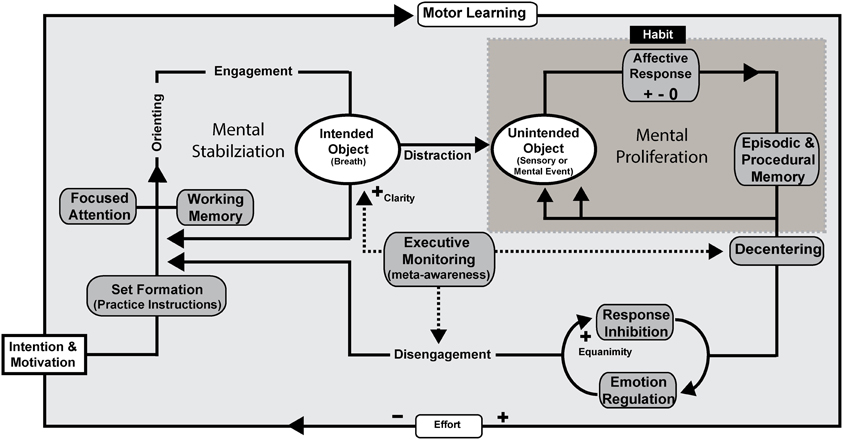Anxiety and depression are common mental health issues that impact countless individuals worldwide. While seeking professional help is crucial, there are also practical strategies individuals can employ to manage and alleviate their symptoms. This article explores emotion regulation strategies, emphasizing the effectiveness of these techniques in coping with anxiety and depression. By adopting these practices, individuals can discover valuable tools to navigate their emotions, ultimately contributing to improved mental well-being.
Understanding Emotion Regulation Strategies for Managing Anxiety and Depression
Strategies to Manage Anxiety and Depression Through Emotion Regulation
Living with anxiety and depression can feel overwhelming, but understanding effective emotion regulation strategies can help you regain control and improve your overall well-being. Here are some practical techniques to help manage your emotions:
- Identify and label your emotions: Begin by becoming aware of your emotions and giving them a name. This acknowledgment can help you process and regulate these feelings more effectively.
- Practice deep breathing exercises: Deep breathing triggers the body’s relaxation response and can help reduce anxiety and promote calmness. Try diaphragmatic breathing techniques to instantly soothe your mind and body.
- Engage in physical activity: Regular exercise has been shown to boost mood and decrease symptoms of anxiety and depression. Find an activity you enjoy and make it a part of your routine. It could be as simple as going for a walk, dancing, or joining a yoga class.
Furthermore, it is important to challenge negative thoughts:
- Practice thought reframing: Identify negative thought patterns and actively replace them with more positive or realistic ones. This process may take time, but by challenging and reframing negative thoughts, you can gradually shift your perspective and reduce anxiety and depressive symptoms.
- Seek social support: Reach out to friends, family, or support groups to share your feelings and experiences. Connecting with others who understand what you’re going through can provide comfort, assurance, and guidance during challenging times.
- Practice self-care: Prioritize self-care activities that rejuvenate and nurture your mind, body, and soul. Whether it’s taking a warm bath, reading a book, or practicing mindfulness, self-care provides a valuable opportunity to recharge and strengthen your emotional resilience.
Incorporating these emotion regulation strategies into your daily life can help you navigate anxiety and depression more effectively. Remember, everyone’s journey is unique, so find the techniques that work best for you, and be patient with yourself as you implement them. With time and practice, you can reclaim control over your emotions and move towards a more balanced and fulfilling life.

Exploring Effective Techniques to Cope with Anxiety and Depression
Mental health issues like anxiety and depression can be overwhelming, but there are various effective techniques that can help individuals cope and regain control over their lives. Understanding these techniques and implementing them can greatly improve one’s mental well-being.
One important technique is practicing relaxation exercises such as deep breathing, progressive muscle relaxation, and meditation. These activities can help reduce stress and anxiety by promoting a state of calmness. Another helpful technique is to engage in regular physical activity, as exercise releases endorphins, which are the body’s natural mood boosters. Whether it’s going for a walk, practicing yoga, or dancing, finding an activity that brings joy can significantly alleviate symptoms of anxiety and depression.
- Setting realistic goals: It can be helpful to set small, attainable goals instead of overwhelming yourself with grand objectives. Focusing on achievable tasks boosts confidence and provides a sense of accomplishment.
- Building a support network: Reach out to friends, family, or support groups who can offer understanding and encouragement. Sharing experiences and connecting with others who can relate can provide a sense of belonging and support.
- Limiting stress triggers: Identifying and addressing stressors is crucial. Taking steps to minimize exposure to triggers or finding healthy ways to cope with them, such as through relaxation techniques or hobbies, can help protect against anxiety and depression.
By exploring and implementing effective techniques to cope with anxiety and depression, individuals can gain a greater sense of control over their mental well-being. Remember that it’s essential to seek professional help if symptoms persist or worsen, as healthcare professionals can provide personalized guidance and support. With the right combination of techniques and support, it’s possible to achieve a happier and healthier state of mind.
Practical Recommendations for Implementing Emotion Regulation Strategies in Daily Life
Emotional regulation is an essential skill that allows individuals to effectively manage their emotions and cope with the ups and downs of daily life. Here are some practical recommendations to help you implement emotion regulation strategies in your day-to-day routine:
- Identify your emotional triggers: Start by recognizing the situations, thoughts, or experiences that tend to evoke strong emotional responses in you. By identifying these triggers, you can develop a better understanding of the underlying causes of your emotions.
- Practice mindfulness: Engaging in mindfulness exercises, such as deep breathing or meditation, can help you develop greater awareness of your emotions and prevent them from overwhelming you. Allocating a few minutes each day to focus on the present moment can significantly improve your ability to regulate your emotions.
- Develop a healthy self-care routine: Prioritizing self-care activities, such as regular exercise, sufficient sleep, and a well-balanced diet, can greatly contribute to emotional well-being. Taking care of your physical health can ultimately enhance your ability to regulate your emotions effectively.
Furthermore, it can be beneficial to:
- Seek social support: Reach out to trusted friends, family members, or professionals when you are feeling overwhelmed. Sharing your emotions and seeking support can provide a different perspective, validation, or practical advice, making it easier to regulate your emotions.
- Practice gratitude: Cultivating a sense of gratitude by focusing on the positive aspects of your life can help shift your emotional state and reduce the intensity of negative emotions. Consider keeping a gratitude journal, where you regularly jot down things you are thankful for, to remind yourself of the things that bring you joy and contentment.
- Engage in creative outlets: Expressing your emotions through creative activities such as painting, writing, or playing an instrument can be an effective way to regulate and process your emotions. Engaging in these outlets allows you to channel your emotions into something tangible and productive.
By implementing these practical recommendations, you can enhance your emotional well-being and develop the necessary skills to regulate your emotions effectively in your daily life.
Building Resilience: Effective Ways to Manage Anxiety and Depression Through Emotion Regulation
Anxiety and depression can be challenging to navigate, but with the right tools and strategies, it is possible to build resilience and effectively manage these conditions. One key approach is developing emotion regulation skills, which involves understanding, accepting, and managing our emotions in a healthy way. Here are some effective techniques to help you on your journey towards emotional well-being:
- Mindfulness meditation: Engaging in regular mindfulness meditation can help you become more aware of your emotions and maintain a present-focused mindset. By practicing non-judgmental awareness, you can cultivate a greater sense of calm and acceptance, reducing anxiety and depression.
- Cognitive restructuring: When negative thoughts and beliefs perpetuate anxiety and depression, it becomes essential to challenge and reframe them. By identifying and replacing distorted or unhelpful thoughts, you can promote a more positive and realistic mindset.
- Self-care: Prioritizing self-care activities like exercise, healthy eating, and sufficient sleep is crucial for managing anxiety and depression. Taking care of your physical health can have a significant impact on your emotional well-being.
Remember, building resilience takes time and effort. It’s important to be patient with yourself and seek support from professionals or support networks when needed. By implementing these effective emotion regulation strategies, you can develop the resilience needed to navigate anxiety and depression, leading to a more fulfilling and balanced life.
Concluding Remarks
In conclusion, emotion regulation strategies play a vital role in managing anxiety and depression. By understanding and implementing effective techniques, individuals can regain control over their emotions and lead a more fulfilling life.
Through this article, we have explored different strategies such as cognitive reappraisal, mindfulness, and expressive writing. Cognitive reappraisal empowers individuals to reframe negative thoughts and develop a more positive perspective. Meanwhile, mindfulness cultivates present moment awareness, allowing individuals to embrace their emotions with compassion rather than judgment. Lastly, expressive writing provides a cathartic outlet for processing emotions and fostering self-understanding.
It is important to remember that emotion regulation is a skill that takes time and practice to develop. It may be helpful to seek support from professionals, such as therapists or counselors, who can guide individuals through this journey towards emotional well-being.
By incorporating these strategies into their daily lives, individuals can better manage anxiety and depression, leading to improved mental health, enhanced relationships, and increased overall happiness. Remember, everyone’s experience is unique, so it’s essential to remain patient and kind to ourselves throughout this process.
In summary, emotion regulation strategies serve as effective tools for managing anxiety and depression. By utilizing techniques like cognitive reappraisal, mindfulness, and expressive writing, individuals can gain control over their emotions and alleviate the burden of these mental health challenges. Remember, reaching out for support is always an option as we work towards a healthier, happier tomorrow.
Each person experiences emotions differently. However, some emotions, such as anxiety and depression, can be especially difficult to cope with. Fortunately, there are a variety of strategies that can help individuals manage these difficult emotions. These emotion regulation strategies are effective in controlling anxiety and depression, allowing individuals to lead more productive and happier lives.
One of the main strategies for managing anxiety and depression is cognitive-behavioral therapy (CBT). CBT helps individuals identify and change negative thinking patterns that can lead to stress and emotional distress. It also encourages the development of healthier coping skills, such as relaxation techniques and problem solving skills, and helps individuals identify the triggers for their emotions. In addition, CBT can also help individuals develop more positive beliefs about themselves and their environment.
Mindfulness is another emotion regulation strategy that has been found to be effective in managing anxiety and depression. Mindfulness is a form of meditation that encourages individuals to focus on the present moment and their inner experience. This type of meditation can help individuals accept their emotions and gain perspective on their situation.
Exercise is another important emotion regulation strategy. Exercise can help improve mood and reduce stress, as it increases the production of endorphins, hormones that produce feelings of happiness. Exercise can also help improve concentration and concentration, making it easier to make wise decisions. Additionally, exercise can help individuals develop coping skills in social and occupational settings, enabling them to better manage their emotions.
Finally, journaling is a great way to process difficult emotions. Writing about personal experiences can help individuals gain insight into their feelings and identify potential sources of stress. Writing can also help individuals find healthier ways to approach situations, allowing them to manage their emotions.
By incorporating emotion regulation strategies such as CBT, mindfulness, exercise, and journaling, individuals can learn to manage their anxiety and depression more effectively. These techniques can help individuals to feel more in control of their emotions, enabling them to lead more productive and satisfying lives.







